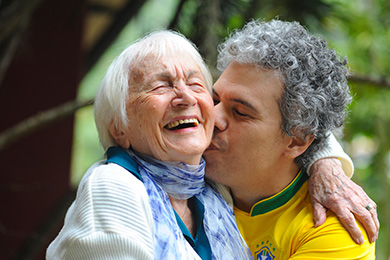Programs
Support groups for Caregivers

Caregivers meet and discuss ways in which to support the family member with Alzheimer's disease; discussions include: Safe Return Bracelet, enlisting support from family members, ways to hold a family meeting, information about medical and non-traditional approaches such as spirituality, music and art. Caregivers also receive relevant materials and information as to how to nurture themselves.
Services
Assessment and Diagnosis
All patients receive an initial comprehensive assessment consisting of cognitive assessment, physical, neurological and psychiatric examination, and social service assessment. Caregivers are also interviewed extensively. Services are provided by psychiatrists, neurologists, geriatricians, fellows, residents, and social workers. Patients are sent for laboratory panels and neuroimaging. There are staff who are fluent in Spanish, Fujianese, Cantonese, Mandarin, and Russian. Health professions students are also often present and participate in evaluations to ensure that the next generation of professionals are prepared to care for persons with dementia.
On-going Treatment
Patients are seen typically every 1 to 6 months dependent on individual needs. During follow-up visits, patients are seen by a psychiatrist, geriatrician, and social worker. The social worker provides counseling and education to caregivers, with special emphasis on working with home attendants and managing behaviors non-pharmacologically.
Outreach
- CEAD at SDHSU can provide a limited number of assessments in the homes of patients that cannot come to our center. The outreach team for these visits consists of a psychiatrist, social worker, and resident or fellow.
- Offers Telehealth services to conduct follow-up visits using internet services (platform: doxy.me).
- Conducts educational programs, workshops and health fairs in the community: venues include churches, synagogues, mosques, senior centers, community agencies, housing projects, and homeless shelters.